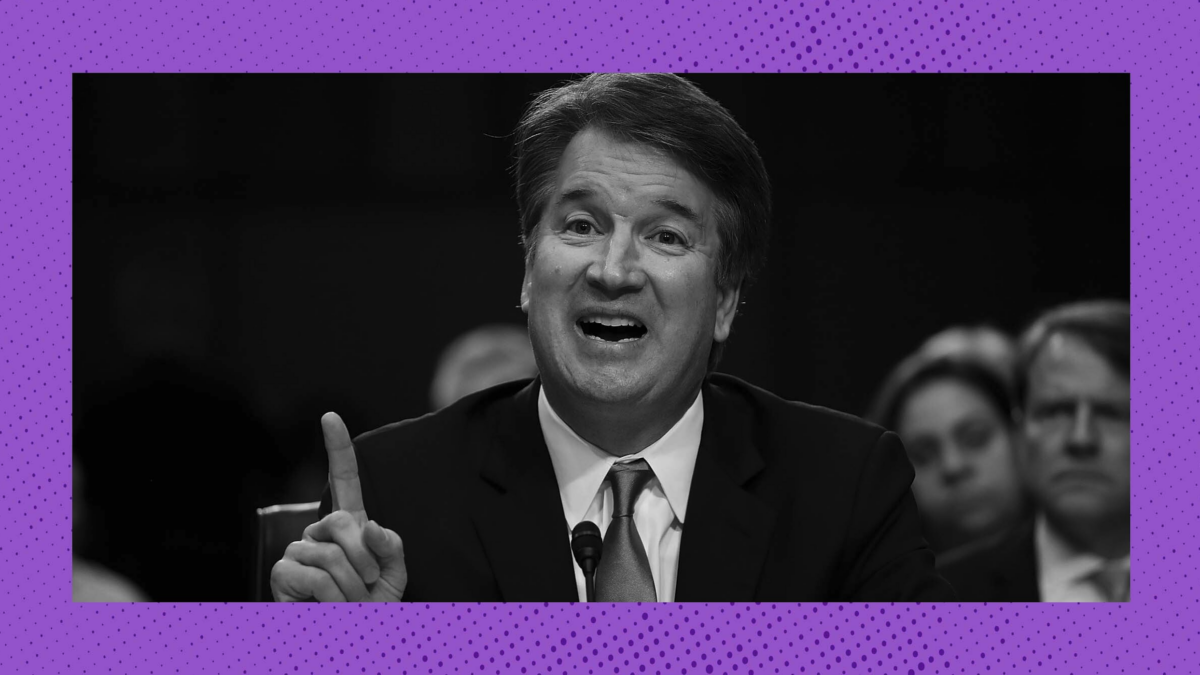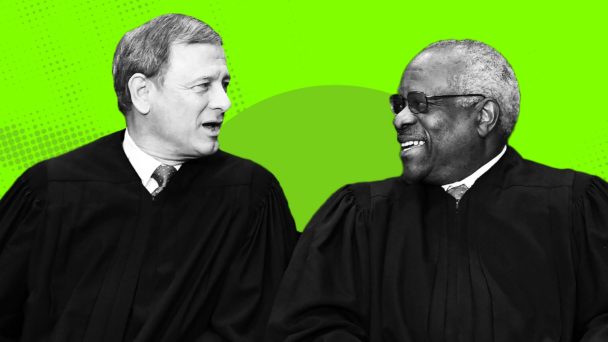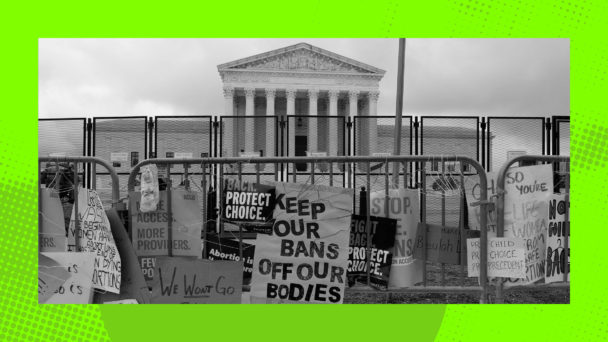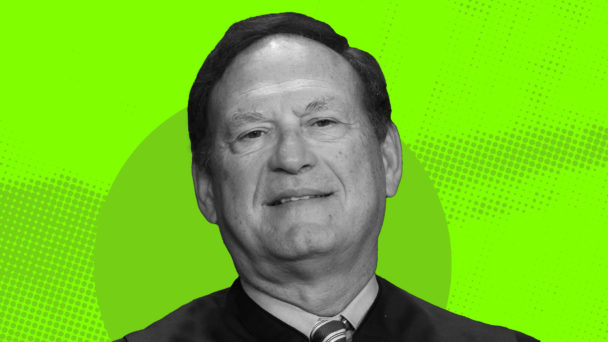Brett Kavanaugh really thought he’d come up with something insightful. Back in December 2021, the Supreme Court heard oral argument in Dobbs v. Jackson Women’s Health Organization, widely viewed as the conservative legal movement’s best chance to overturn Roe v. Wade after five decades of trying. In an expository monologue disguised as a question for Julie Rikelman, who represented the lone remaining abortion clinic in Mississippi, Kavanaugh bemoaned that Roe had “forced” the Court “to pick sides on the most contentious social debate in American life,” rather than leaving it to “the people, to the states, or to Congress.” The Court, he suggested, could instead be “scrupulously neutral on the question of abortion, neither pro-choice nor pro-life,” and thus “return to a position of neutrality on that contentious social issue, rather than continuing to pick sides.”
When the Court released its opinion in Dobbs, Kavanaugh indeed voted to end the right to reproductive freedom, the task for which President Donald Trump had nominated him to the Court four years earlier. But in a concurrence, Kavanaugh returned once more to his favorite sets of buzzwords, reiterating his view that the Constitution is “neither pro-life nor pro-choice.” Although he professed to “greatly respect” those who disagree, the result in Dobbs, he concluded, “heeds the constitutional principle of judicial neutrality,” and “returns the issue of abortion to the people and their elected representatives.” In 12 pages, Kavanaugh extolled the virtues of “neutrality” 13 times. If his opinion were a high school civics essay, his teacher would have docked him points for repeating himself to hit the word count.
The majority opinion, written by Justice Samuel Alito, was similarly sanctimonious, if less performatively courteous to the people whose rights it erased. By overruling Roe and Casey, Alito wrote, the justices were extricating themselves from the messiness of setting abortion policy, and “return[ing] that authority to the people and their elected representatives.”
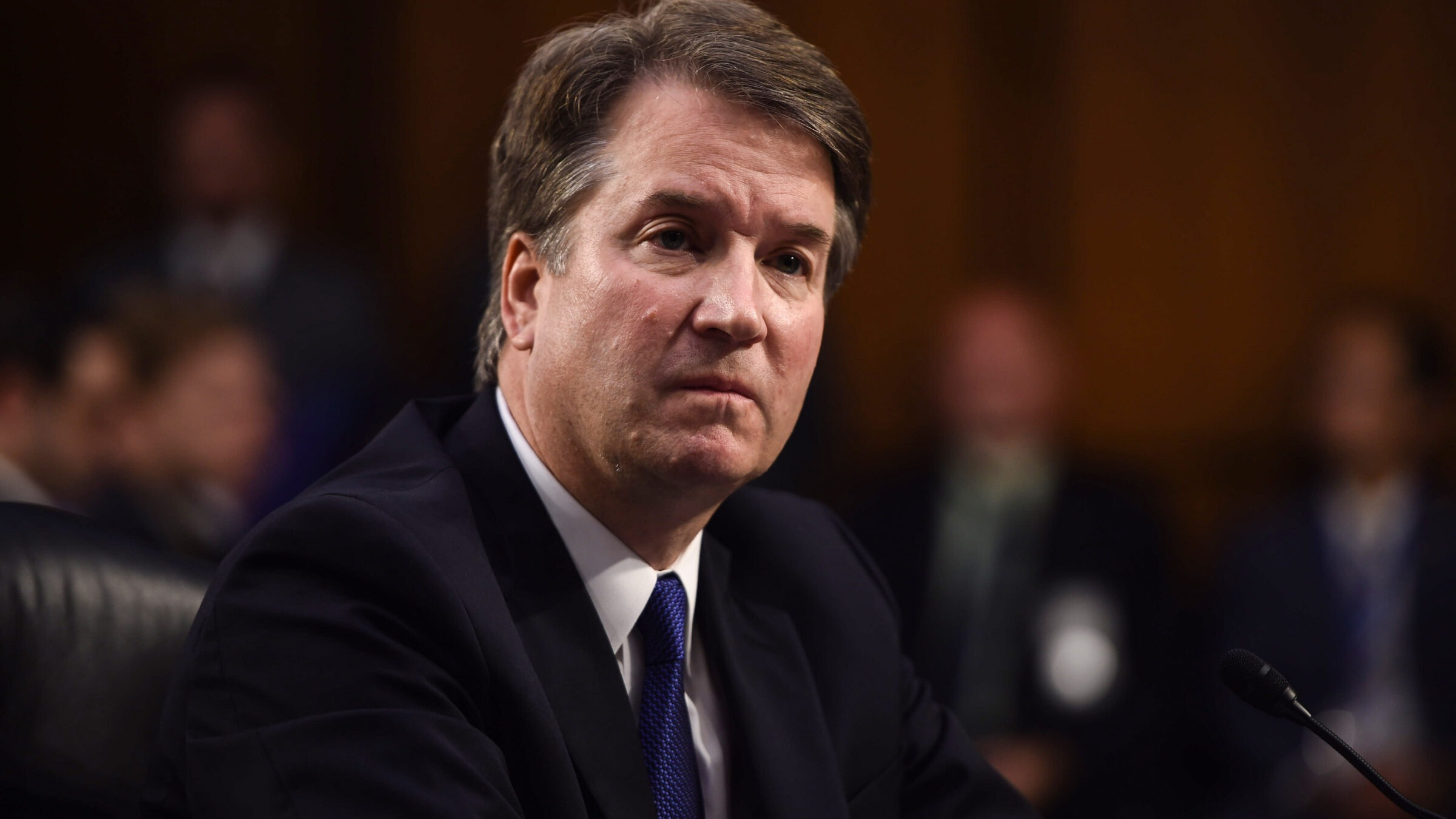
When you fulfilled a longstanding goal of the conservative legal movement but now no one at the Chevy Chase Harris Teeter will look you in the eye (BRENDAN SMIALOWSKI/AFP via Getty Images)
I do not mean to surprise you here, but as it turns out, Kavanaugh and Alito were lying. Earlier this month, the Supreme Court allowed a draconian abortion ban in Idaho to take effect, blocking a lower court order that limited a pregnant person’s right under federal law to obtain abortion care during medical emergencies. (The case should not be confused with a different decision, this one out of the ultraconservative Fifth Circuit Court of Appeals, that similarly attempts to subjugate the health and safety of pregnant people to the whims of anti-choice state lawmakers.) The Supreme Court will hear oral argument in the Idaho cases, Moyle v. United States and Idaho v. United States, sometime in April.
This term, the Court will also likely decide Food and Drug Administration v. Alliance for Hippocratic Medicine, a case in which homophobic blogger-turned-Trump judge Matt Kacsmaryk attempted to unilaterally invalidate the FDA’s 20-plus-year-old approval of mifepristone, which doctors often prescribe as part of a safe medication abortion regimen. Nationwide, medication abortions comprise more than half of abortions, and are especially important for people living in rural areas who lack easy access to a brick-and-mortar clinic. If allowed to stand, Kacsmaryk’s opinion would make it harder for pregnant people to obtain care, even in states where abortion is ostensibly legal.
Dobbs, as framed by the justices who signed on to it, was supposed to be a principled transfer of lawmaking authority to “the people and their elected representatives.” Instead, it entrusted more of that authority to the likes of Matt Kacsmaryk, who is happy to exercise it as the men of the Dobbs majority would prefer. What is a little state-sanctioned misogyny among those claiming the mantle of vigilant defenders of democratic values?
My best guess is that Alito, a mendacious crank who does not care about the opinions of people who do not subscribe to Newsmax, knew exactly what he was doing here; I am a little less confident about Kavanaugh, whose desire to implement his preferred policy agenda occasionally clashes with his desperate need to be liked. But whether Kavanaugh is also a cynical misanthrope or merely a bog-standard mark is sort of beside the point. The silly premise of both of their opinions in Dobbs is that the Court could ever be “neutral” on the subject of reproductive freedom, a basic human right that Republican politicians and their deep-pocketed backers are constantly working to roll back. The justices have spent generations arrogating political power to themselves, reshaping the country’s system of three theoretically co-equal branches of government into a de facto juristocracy. They cannot suddenly rid themselves of any “contentious social issue,” abortion or otherwise, by snapping their fingers and rattling off a handful of bromides about the virtues of judicial humility.
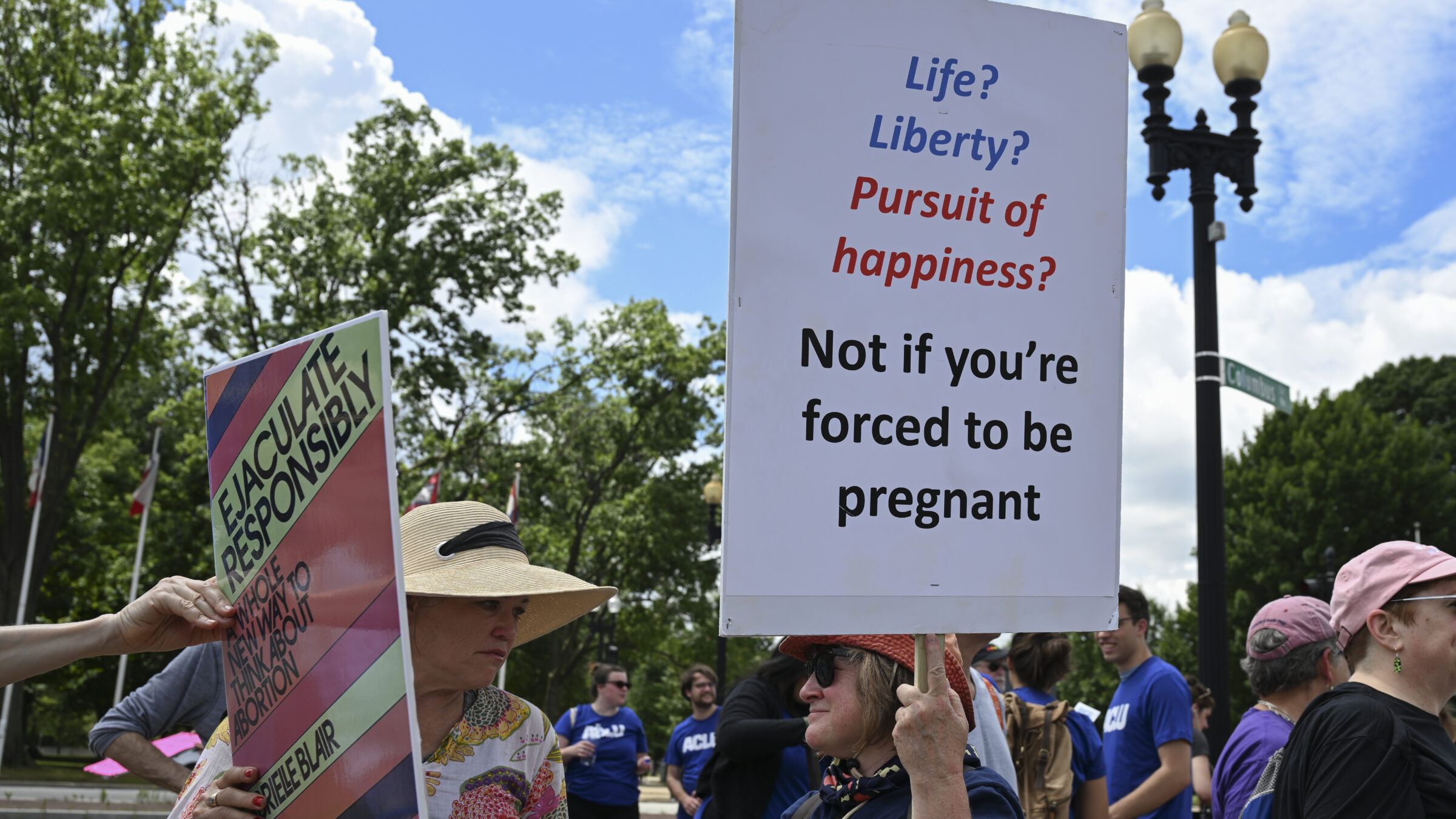
(Photo by Celal Gunes/Anadolu Agency via Getty Images)
As the language of Kavanaugh’s opinion suggests, conservatives often fault Roe for delegating to the Court a task for which it was not equipped. The Roe majority, they argue, should have understood that its irresponsible embrace of judicial activism would become the subject of unending litigation, deep-seated political conflict, and occasionally-deadly violence. But the fight for safe, legal abortion access continues in spite of Dobbs, which did not get the Court out of the abortion business so much as it placed a thumb on the other side of the scale, replacing a (fragile) rule that protected the right to bodily autonomy with a new rule that errs on the side of denying it. All Dobbs means is that the upper hand in this fight now belongs to Alliance Defending Freedom lawyers, not the women whose lives are in jeopardy if Alliance Defending Freedom lawyers don’t get what they want.
“Judicial neutrality” sounds nice; so do soaring paeans to the wisdom of government by “the people and their elected representatives.” The briefest of glances at the headlines also reveal them as howlingly obvious fictions. The Court will continue to decide abortion cases this term and next term and probably every term after that, because anyone who wants to accomplish anything in this country understands that lawmaking by judicial fiat is the most promising path to victory. To the extent that Kavanaugh or any of his colleagues are sincerely dismayed by the status quo, they have no one to blame but themselves for bringing it about.
There are no magic words that will get the Supreme Court out of the business of “picking sides.” There are only sides for the Supreme Court to pick.
